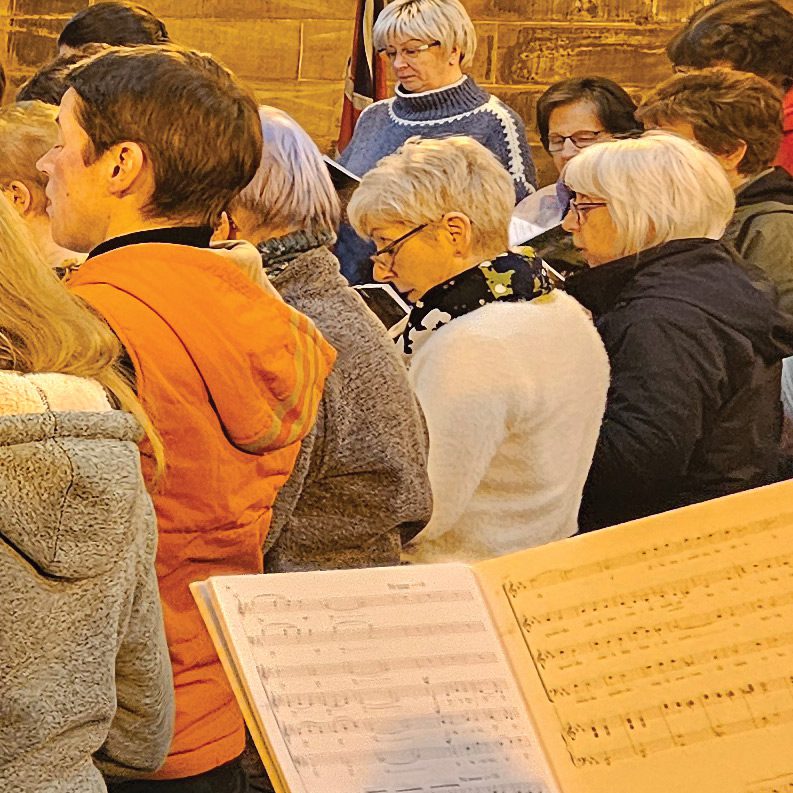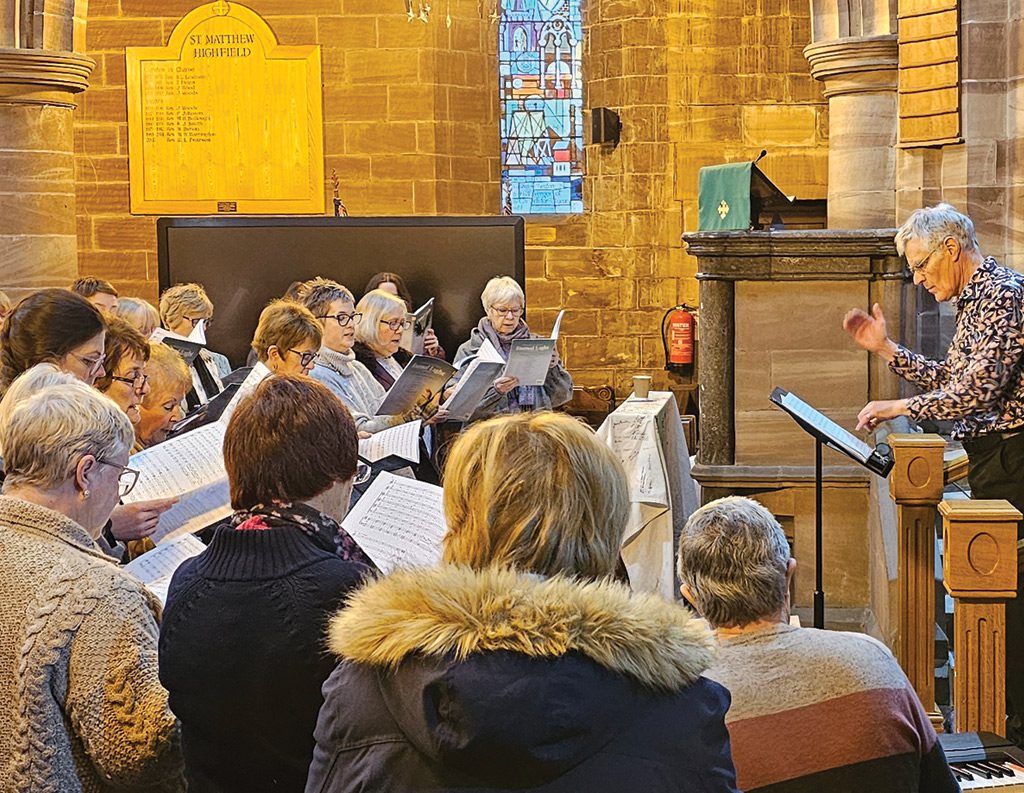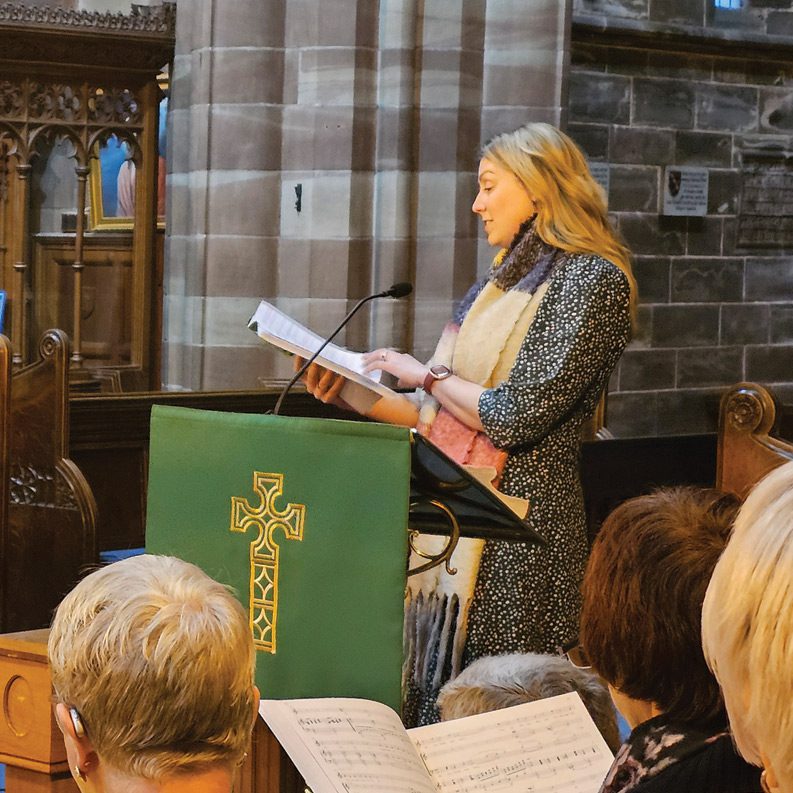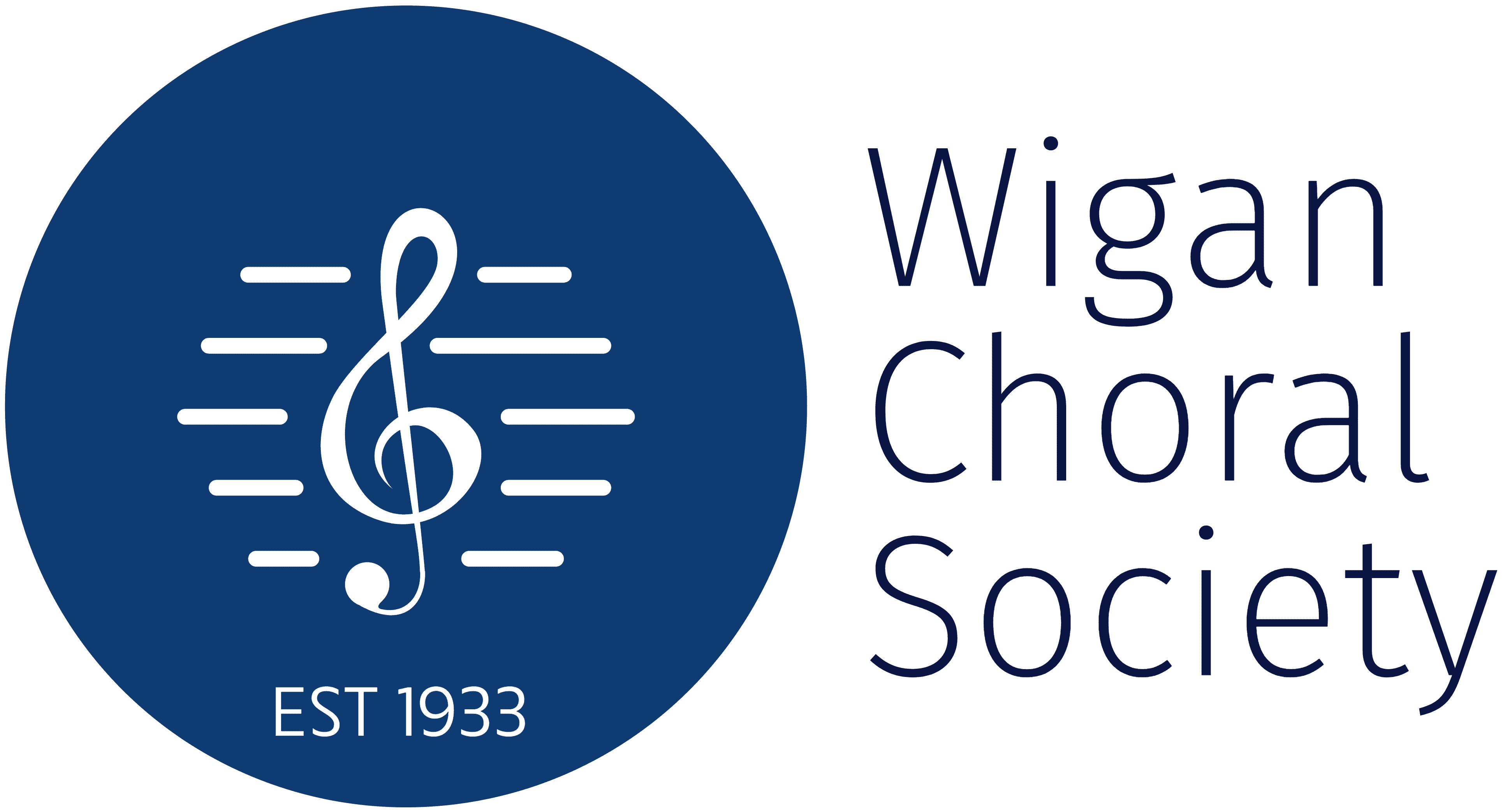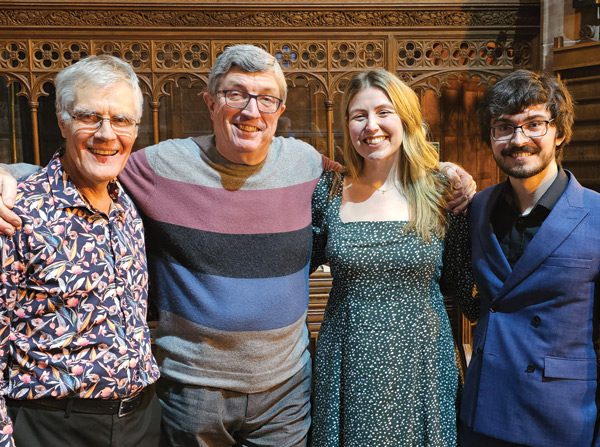
Our rehearsals take place on a Monday night at 7.30pm – 9.30pm.
If you would like to come along to a rehearsal please get in touch so we can ensure we have spare music available for you. Please state whether you have a preference for singing, soprano, alto, tenor or bass.
We are currently rehearsing at St Michael & All Angels Church, Duke Street, Wigan, WN1 2BJ – check our Facebook page for details.
Everyone’s Welcome – No Audition Needed!
We do not audition. Some ability to sight-read is very useful (but not all members are fluent at reading music). We tend to try to sight-read a piece on our first run-through, then break it down into segments to ensure everyone is hitting the right notes, so if we don’t get it right the first time, we will by the end of the rehearsal.
How much does it cost to join?
The Choral Society is a registered charity and we ask for a subscription from members. However, we want the choir to be accessible to everyone, so please speak to us if you wish to join but are not able to meet the full subscription.
The fees for each year are: £200
(approximately £66 per term).
We offer discounted rates for students and can provide the option for you to make payments in instalments over the year.
What do we sing?
We sing a variety of styles of music including Classical, Modern/contemporary classical, Early music (12th to 17th century), Gospel/soul, Jazz/big band/swing, Opera and Folk/traditional. However, choral music is our main emphasis.
What is choral music?
Choral music has ancient roots, dating back to early civilizations like Egypt, Greece, and Rome, where communal singing was an essential part of religious ceremonies, theatrical performances, and social gatherings. In ancient Greece, choruses performed in dramatic plays and festivals, often accompanied by instruments. During the medieval and Renaissance periods, choral music became more structured, with composers developing intricate polyphonic styles that enriched vocal harmonies. By the Baroque and Classical eras, composers like Bach, Handel, and Mozart expanded choral music’s complexity, incorporating it into large-scale compositions such as oratorios and requiems.
In the 19th and 20th centuries, choral music evolved beyond its traditional religious and courtly settings, with composers like Brahms and Verdi exploring secular themes while still honoring rich vocal traditions. Community choirs, schools, and concert halls embraced choral singing, making it a vital part of both artistic and cultural expression. Today, choral music remains diverse, blending classical, folk, gospel, and contemporary influences, continuing its legacy as a powerful form of collective musical expression. Find out when we are next performing.
